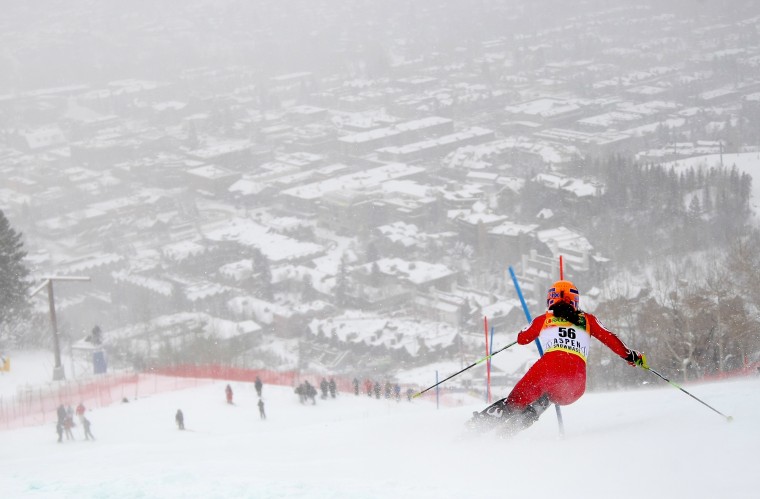This wicked winter notwithstanding, a study of two Rocky Mountain ski resorts says climate change will mean shorter seasons and less snow on lower slopes.
The study by two Colorado researchers says Aspen Mountain in Colorado and Park City in Utah will see dramatic changes even with a reduction in carbon emissions, which fuel climate change.
University of Colorado-Boulder geography professor Mark Williams said Monday that the resorts should be in fairly good shape the next 25 years, but after that there will be less snowpack — or no snow at all — at the base areas, and the season will be shorter because snow will accumulate later and melt earlier.
If carbon emissions increase, the average temperature at Park City will be 10.4 degrees warmer by 2100, and there likely will be no snowpack, according to the study. Skiing at Aspen, with an average temperature 8.6 degrees higher than now, will be marginal.
The key to the survival of the larger ski areas in the Rockies will be adaptation, according to the study by Williams and Brian Lazar, a scientist at Boulder-based Stratus Consulting. The researchers said they expect many U.S. ski areas to follow the lead of resorts in the European Alps already dealing with snow shortages by storing water to use for snowmaking.
The two also suggest that resorts add gondolas to ferry skiers from low-snow base areas to snowier spots and expand operations at higher elevations.
The study focuses on Park City and Aspen, which helped sponsor it. But Lazar and Williams, who are researching the effects of climate change on ski areas on the West Coast and in New England, said several ski areas in California, Oregon and Washington and in the East likely will face similar or worse conditions.
The pair combined temperature and precipitation data for Aspen Mountain and Park City Mountain with general climate circulation models for the study. They mapped three scenarios: a slower increase in carbon emissions; continuation of the current rate; and increased emissions.
"It's not all doom and gloom, particularly for the Rockies," said Williams, a fellow at CU-Boulder's Institute of Arctic and Alpine Research.
Reducing the rate at which carbon emissions increase — the best-case or "green" scenario — likely will still mean less snow accumulation and shorter seasons, but the results won't be as dramatic, the researchers said. The Rockies' high elevations and cold weather will enable the resorts to make up for snow shortages through stepped-up snowmaking.
More snowmaking, though, will require more water, a challenge in an area where most of the water rights are already allocated, the researchers said.
Even if emissions are reduced, winters will be warmer and less snowy than in the past because there's a 50- to 70-year lag between release of the carbon emissions and the effects, the researchers said.
"Some of this warming is written in the cards. That's the bad news," Lazar said. "The good is that which emission path we end up on makes a dramatic difference."
The Park City and Aspen ski resorts have taken several steps to cut their emissions by switching to solar and wind power, increasing energy efficiency and using cleaner-burning snow machines.
But ski resorts could eliminate all their carbon emissions and not save the industry, said Auden Schendler, executive director of sustainability for Aspen Skiing Co. The issue of climate change is much bigger than just one industry, he added.
"I think the issue of climate change at ski resorts is a way for people to understand the broader issue of climate change. In a way, it's a metaphor for the world," Schendler said. "This should be the No. 1 lobbying issue for our whole industry."
Aspen Skiing officials have testified before Congress on addressing climate change and filed a supporting brief in a lawsuit by Massachusetts and other states pushing for regulation of carbon dioxide and other greenhouse gases as pollutants.
